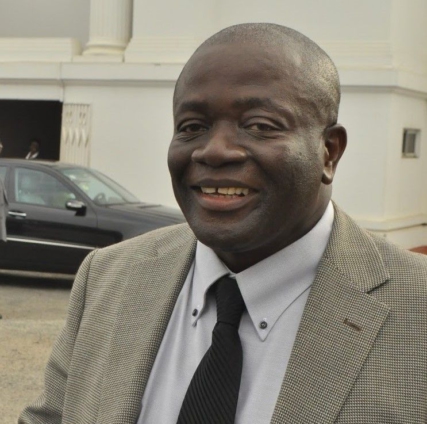The Receiver of defunct uniBank, Nii Amanor Dodoo has testified to the High Court that fictitious loans in excess of ₵1 billion were created in the names of identified customers of the bank. He made the disclosure in the revocation of license case of uniBank.
According to him, the funds credited were subsequently debited by Elsie Dansoa Kyere, the then Head of Corporate Banking, and Benjamin Ofori, a former Executive Head of Credit Risk of uniBank.
Mr. Dodoo also testified that the fictitious loans were created based on memos generated by some persons in the bank.
The Receiver admitted that the banking system was designed in a way that when a loan was disbursed into the loan account, the said sum was concurrently transferred/credited to the current account of the customer.
The Receiver further admitted that uniBank disbursed ₵28million in two equal tranches of ₵14 million on 6th January 2016 and November 11, 2016 into two new loan accounts including that of Fuzak company.
The Receiver testified that he found an email dated January 19, 2016 from A8 seeking approval to open additional current accounts.
He added that Benjamin Ofori, a former Executive Head of Credit Risk of Unibank had no business requesting for accounts to be opened as he sought to do by his email, as that was not the procedure in Unibank, for opening new current accounts.
Counsel for Mr. Ofori therefore suggested that the disbursement of an amount of ₵14 million into a fictitious account on January 6, 2016 could not have been sanctioned by Mr. Ofori as he requested for the opening of additional accounts was dated 19th January 2016.
Mr. Dodoo denied this suggestion and added that he tendered in evidence various memos initiated by persons including Mr. Ofori in support of the opening of these fictitious accounts.
The Receiver could however not identify any part of the memos which specifically indicated that Mr. Ofori requested for the creation of the additional current accounts.
He explained that the email by Mr. Ofori dated January 19, 2016 was just an example given to support how violations to procedures in opening current accounts were done.
To a suggestion by Counsel for Mr. Ofori that there seemed to be no evidence suggesting he requested for the creation of the fictitious accounts into which the ₵28 million was disbursed on January 6, 2016 and November 11, 2016, the Receiver answered that the fact that the memos did not contain evidence of the request to create additional accounts did not mean there was no such evidence.
The Receiver testified that most of the customers, in relation to whom fictitious accounts were created, were unaware of the existence of these fictitious accounts.
Others however got to know of loans being credited to their accounts without their knowledge and applied for the reversal of these loans.
One of such customers was Fuzak. He explained that when he engaged the Managing Director of Fuzak to repay the loan balance on Fuzak’s fictitious account, the MD indicated Fuzak never applied for any such loan.
The MD, according to the Receiver, explained that when he realized that Fuzak’s regular account was credited with the loan proceeds of ₵ 14 million, he approached the Relationship Manager who informed him the said amount was credited erroneously.
The amount was therefore reversed. Counsel for Mr. Ofori suggested that this narration purportedly from the MD of Fuzak was just a ploy by Fuzak to avoid repaying its debts.
Counsel was of the view that as these narrations were made by Fuzak two years after the transactions had occurred and only after demands were made on the company for the repayment of the loan, the said narrations could not be credible .
The Receiver further testified that on January 6, 2016, the amount of ₵ 14 million earlier credited to Fuzak’s account was transferred from the account to Unibank’s shareholders’ account without Fuzak’s authorization.
His transaction reflected in the statement on Fuzak’s regular account. The Receiver admitted that he did not sight any official complaint from Fuzak.
Counsel for Mr. Ofori suggested to the Receiver that to the extent that the supposed fictitious transaction was captured on the bank statement of the regular account of Fuzak, the transaction could not be said to have been done on the blind side of Fuzak. The Receiver denied this suggestion and added that Fuzak was unaware of this suspicious transaction.
Latest Stories
-
Reason for training professional counsellors is to heal a hurting world – CCP president
1 hour -
Woman allegedly brings dead man to bank to take out a loan
2 hours -
It’s a good feeling to score against PSG because I’m a Marseille boy – Andre Ayew
2 hours -
Joe Lartey Sr: A voice that brought life to Ghana sports and beyond
3 hours -
Bawumia promises to tackle issue most dear to Ghanaians as he begins nationwide campaign
4 hours -
Indian couple donate $24m fortune to charity to adopt monkhood
4 hours -
Australians call for tougher laws on violence against women after killings
5 hours -
African Development Council establishes mission in Benin for Francophone countries
5 hours -
Okyeame Kwame reveals his secret to longevity in music industry
5 hours -
Youthful-looking 60-year-old woman qualifies for Miss Argentina contest
5 hours -
Ejisu By-Election: Campaign heats up as NPP holds final rally ahead of Polls on Tuesday
5 hours -
Rwanda plan: Irish government wants to send asylum seekers back to UK
5 hours -
Ice cubes now cost more than bread and milk in parts of Mali
7 hours -
Titanic gold pocket watch sells for £900,000
8 hours -
Elon Musk in China to discuss enabling full self driving – reports
8 hours

